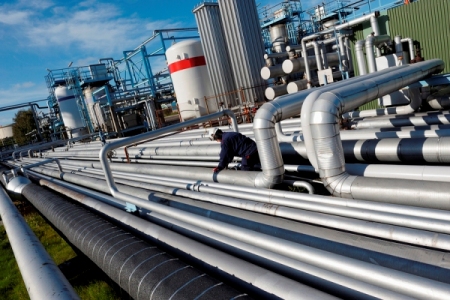"Urgent policy action is needed to ensure supply and lower prices for consumers and industry and to avoid job losses," according to Ai Group chief executive Innes Willox.
"The Ai Group report released today provides further evidence of the extent of the problem and a realistic package of solutions – including a national interest test for new LNG export facilities.
"The report 'Energy shock – the gas crunch is here' – builds on a survey of gas-using companies across Eastern Australia in April and May. Businesses are finding it extremely difficult to secure gas contracts. Of those businesses currently looking for gas contracts, nearly 10 per cent could not get an offer at all. Another third could not get a serious offer. 26 per cent could get an offer from only one supplier. Only a third of respondents (32 per cent) received multiple contract offers.
"In relation to pricing - of those businesses being offered contracts, businesses seeking relatively short-term contracts to commence in 2013 were seeing offers of an average of $5.12 a gigajoule – a sizable uplift from historic prices of $3-4.
"For businesses seeking later or longer contracts, the average offer was $8.72 a gigajoule – which is more than double the historic price. These rises are coming faster than many thought. By comparison, in its first year the carbon tax added around $1.20 per gigajoule to the cost of using gas. In other words the gas crunch will hit gas users four times harder than the carbon tax did, and this adjustment is coming without compensation, assistance or responsive policy.
"Gas is a valuable export, but it also plays an enormous role in the domestic economy. Gas fires the boilers in breweries and the furnaces in foundries. It is a critical direct input into production in the plastics and fertiliser industries and others.
"A 2012 report prepared for Ai Group and the Plastics and Chemicals Industries Association found that each petajoule of gas used in domestic industry enables $255 million in industrial output – and that we risk immense harm to employment and economic activity if adequate, affordable gas supply is not available. We shouldn't have to wait till the brewery has no gas for its boilers and the pub has no local beer before serious attention and government action is given to this issue.
"Addressing this gas crunch requires some substantial policy changes. Increasing gas production is essential. However this is not easy – and, on its own won't be enough. Market reforms are needed too and they need to be accelerated. Ai Group is also seeking a national interest test (see Appendix) for new or significantly expanded Liquefied Natural Gas export capacity.
"Existing LNG projects have triggered much of the current supply squeeze and price rise. Closely following the United States and Canadian models, the national interest test would provide an opportunity to assess the national economic consequences of future major gas export projects. The public and other gas users would have the chance to understand and respond to proposals before they are locked in.
"We recognise the importance of keeping regulatory burdens low and minimising the time it takes to develop new projects and we propose that a streamlined approach to the national test be developed that works in parallel with other regulatory approval processes. While a national approach to such a test is strongly preferable – with an independent board reporting to the Federal Treasurer – equivalent approval processes could be developed by the States until a national approach can be achieved.
"We do not propose a gas reservation policy and want to maintain Australia's reputation for investment. Gas production and export can flourish under a national interest test, as they do in the United States and Canada. A more considered approach to export approvals is not a silver bullet, but will increase the effectiveness of other necessary actions.
"In sum, our reform package involves: ensuring domestic gas supply and gas exports can both flourish, by instituting a national interest test for new LNG export capacity; increasing gas production, particularly from unconventional gas resources, by ensuring that regulatory arrangements are in place at all levels of government which command community confidence and make timely, workable and consistent decisions; and enhancing the transparency and competitiveness of the gas market, by accelerating the current market reform agenda and urgently developing more options.
"The reality is, even with these policies in place, gas users face serious pressures and prices will likely never return to the lows that have underpinned many businesses' international competitiveness over the last few decades.
"A near term supply squeeze may be unavoidable but we can, and should, be doing more to ease the longer term risks of restricted gas supply and even higher prices. In this election year we urge all political parties to contribute to the debate and consult with industry on policies to reform Australia's gas market," Willox said.
- Suppliers
- New to IndustrySearch? Book a Demo
- Advertise with us
- Login
- Email Marketing
- Buyers
- Get Quotes
- Articles & Ideas
- Login
- Subscribe to newsletter
- My Details
- Get Quotes
- Automation & Control
- Automotive Workshop Equipment
- Cleaning Equipment
- Construction & Heavy Machinery
- Conveyor Systems & Components
- Cranes & Hoists
- Electrical & Power Generation Equipment
- Electronic Components
- Farming & Agriculture
- Food & Beverage Processing
- Forklifts & Attachments
- Hydraulic & Pneumatic Equipment
- Industrial Materials, Tools & Components
- Industrial Pumps
- IT Hardware & Industrial Computing
- IT Software & Applications
- Laboratory Equipment & Instruments
- Manufacturing & Industrial Equipment
- Material Handling & Lifting
- Metalworking & Machining
- Mining Equipment & Machinery
- Packaging & Labelling Machinery
- Pallet Management
- Personal Protective Equipment
- Security & Surveillance
- Test & Measurement
- Transport Equipment
- Trucks & Trailers
- Warehouse Storage & Racking
- Waste & Environmental Management
- Welding Machines & Accessories
- Woodworking & Joinery Machines
- Workplace Equipment
- Workplace Safety Equipment
- Get Quotes
- Automation & Control
- Automotive Workshop Equipment
- Cleaning Equipment
- Construction & Heavy Machinery
- Conveyor Systems & Components
- Cranes & Hoists
- Electrical & Power Generation Equipment
- Electronic Components
- Farming & Agriculture
- Food & Beverage Processing
- Forklifts & Attachments
- Hydraulic & Pneumatic Equipment
- Industrial Materials, Tools & Components
- Industrial Pumps
- IT Hardware & Industrial Computing
- IT Software & Applications
- Laboratory Equipment & Instruments
- Manufacturing & Industrial Equipment
- Material Handling & Lifting
- Metalworking & Machining
- Mining Equipment & Machinery
- Packaging & Labelling Machinery
- Pallet Management
- Personal Protective Equipment
- Security & Surveillance
- Test & Measurement
- Transport Equipment
- Trucks & Trailers
- Warehouse Storage & Racking
- Waste & Environmental Management
- Welding Machines & Accessories
- Woodworking & Joinery Machines
- Workplace Equipment
- Workplace Safety Equipment
Trusted by 1.4 million Australian industrial buyers
Buyers
- Discover products & solutions
- Login
- Subscribe To Newsletter
- Browse All Products
- Read Articles
Suppliers
Advertise
- Promote your products & solutions
- New to IndustrySearch? Book a Demo
- Login / Forgot Password
- Advertise Your Products
- Success Stories
- Email Marketing
- Suppliers
- Advertise with us
- Login
- Email Marketing
- Buyers
- Get Quotes
- Articles & Ideas
- Login
- Subscribe to newsletter
- My Details
Get Quotes
- Automation & Control
- Automotive Workshop Equipment
- Cleaning Equipment
- Construction & Heavy Machinery
- Conveyor Systems & Components
- Cranes & Hoists
- Electrical & Power Generation Equipment
- Electronic Components
- Farming & Agriculture
- Food & Beverage Processing
- Forklifts & Attachments
- Hydraulic & Pneumatic Equipment
- Industrial Materials, Tools & Components
- Industrial Pumps
- IT Hardware & Industrial Computing
- IT Software & Applications
- Laboratory Equipment & Instruments
- Manufacturing & Industrial Equipment
- Material Handling & Lifting
- Metalworking & Machining
- Mining Equipment & Machinery
- Packaging & Labelling Machinery
- Pallet Management
- Personal Protective Equipment
- Security & Surveillance
- Test & Measurement
- Transport Equipment
- Trucks & Trailers
- Warehouse Storage & Racking
- Waste & Environmental Management
- Welding Machines & Accessories
- Woodworking & Joinery Machines
- Workplace Equipment
- Workplace Safety Equipment
Get Quotes
- Automation & Control
- Automotive Workshop Equipment
- Cleaning Equipment
- Construction & Heavy Machinery
- Conveyor Systems & Components
- Cranes & Hoists
- Electrical & Power Generation Equipment
- Electronic Components
- Farming & Agriculture
- Food & Beverage Processing
- Forklifts & Attachments
- Hydraulic & Pneumatic Equipment
- Industrial Materials, Tools & Components
- Industrial Pumps
- IT Hardware & Industrial Computing
- IT Software & Applications
- Laboratory Equipment & Instruments
- Manufacturing & Industrial Equipment
- Material Handling & Lifting
- Metalworking & Machining
- Mining Equipment & Machinery
- Packaging & Labelling Machinery
- Pallet Management
- Personal Protective Equipment
- Security & Surveillance
- Test & Measurement
- Transport Equipment
- Trucks & Trailers
- Warehouse Storage & Racking
- Waste & Environmental Management
- Welding Machines & Accessories
- Woodworking & Joinery Machines
- Workplace Equipment
- Workplace Safety Equipment
Trusted by 1.4 million Australian industrial buyers







-160x160-state_article-rel-cat.png)


-160x160-state_article-rel-cat.png)









